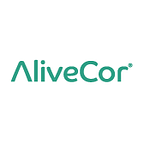Early Detection of Atrial Fibrillation-Atrial Flutter Using Remote Patient Monitoring
AliveCor’s Kardia product was successful in helping a patient with a history of ischemic heart disease detect possible atrial fibrillation.
Major adverse cardiac events like myocardial infarction, stroke, and arrhythmias may occur in patients without any warning. Remote patient monitoring is a useful healthcare delivery tool to help physicians predict such adverse cardiac events and in turn, improve patient outcomes.
This case report is of a 64-year-old Caucasian male patient with a past medical history of percutaneous transluminal coronary angioplasty in 2016, paroxysmal atrial fibrillation, hypertension, dyslipidemia, and HIV. The patient was on antiretroviral treatment, had no known family history of cardiac disease or diabetes, and had no history of smoking and alcohol and drug use.
After the patient started experiencing palpitations and angina, he used his AliveCor Kardia device to complete an initial ECG rhythm stripe. Three minutes later, the patient recorded a second ECG rhythm stripe and voiced this into his device: “I’m feeling as if I have…some pressure on my chest”. His symptoms, detection of “possible atrial fibrillation” by AliveCor Kardia’s algorithm, and the increased heart rate to 139 beats per minute (bpm) as measured by the Kardia device prompted the patient to call an ambulance.
Upon presentation at the emergency department, the 12-lead ECG test showed a heart rate of 133 bpm, atrial fibrillation and flutter with rapid ventricular response, and nonspecific ST abnormality. The patient was diagnosed with atrial fibrillation-flutter with rapid ventricular heart rate and chest pain.
Conclusion: This case highlights how patient self-assessment of cardiac symptoms using the AliveCor Kardia device can lead to the seeking of timely medical care. The AliveCor Kardia device not only enabled the immediate recording of the patient’s ECG, but also displayed his heart rate and allowed him to verbally report his symptoms using the device’s voiceover feature. The AliveCor Kardia device can be a useful tool to optimize the clinical management of high-risk heart disease patients — the device can help predict adverse cardiac events and improve patient outcomes.
For more updates and exclusive information on being heart-healthy, follow us on Facebook, Twitter, Instagram and LinkedIn.
AliveCor, recognized as a Tech Pioneer by the World Economic Forum, is transforming cardiology by delivering AI-based, personalized heart care solutions. Our FDA-cleared machine learning techniques are recommended by doctors around the world.
